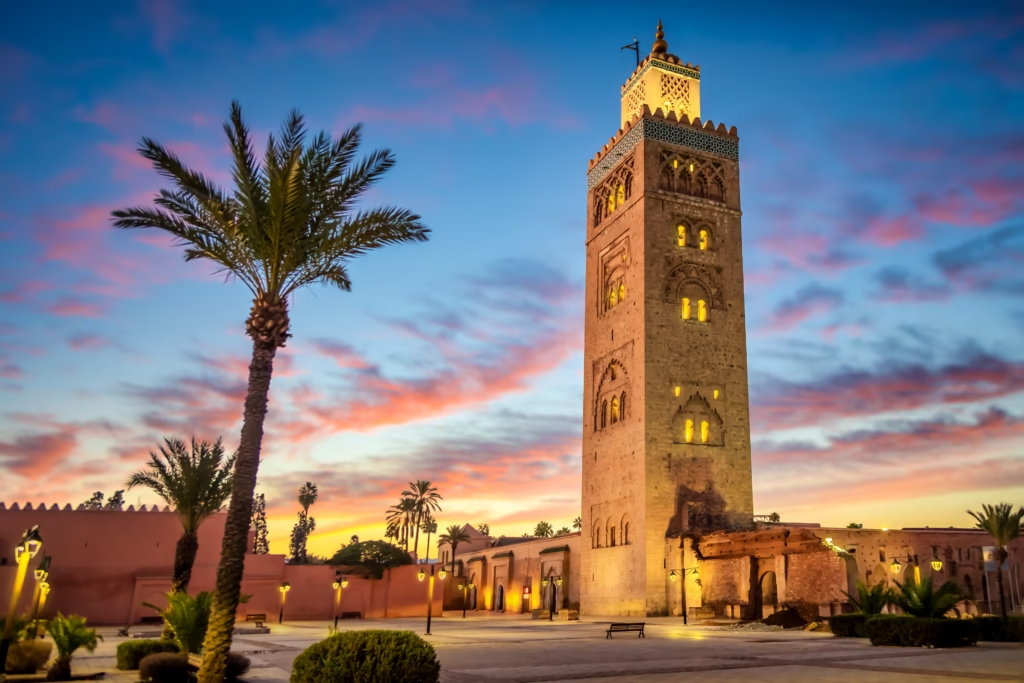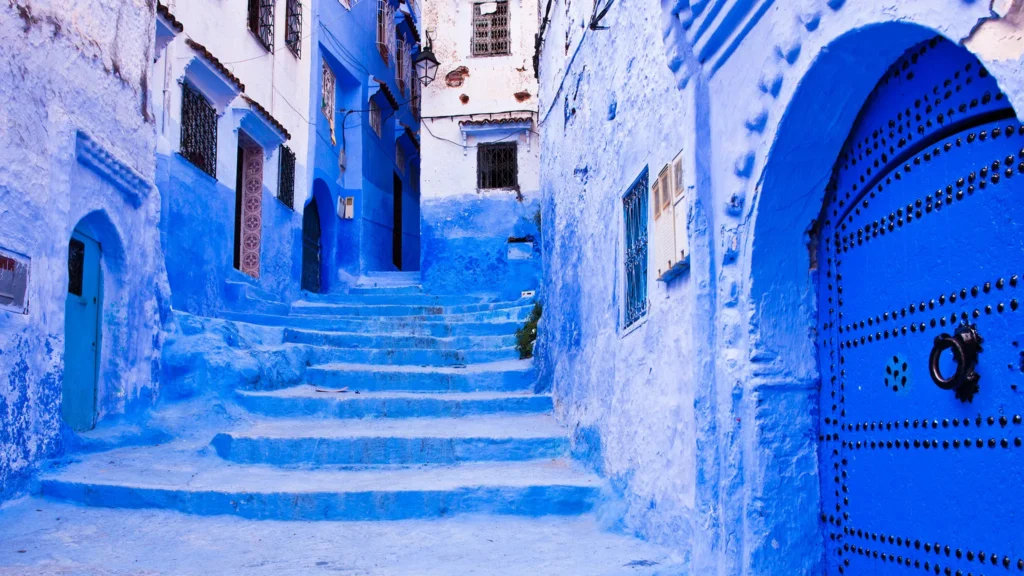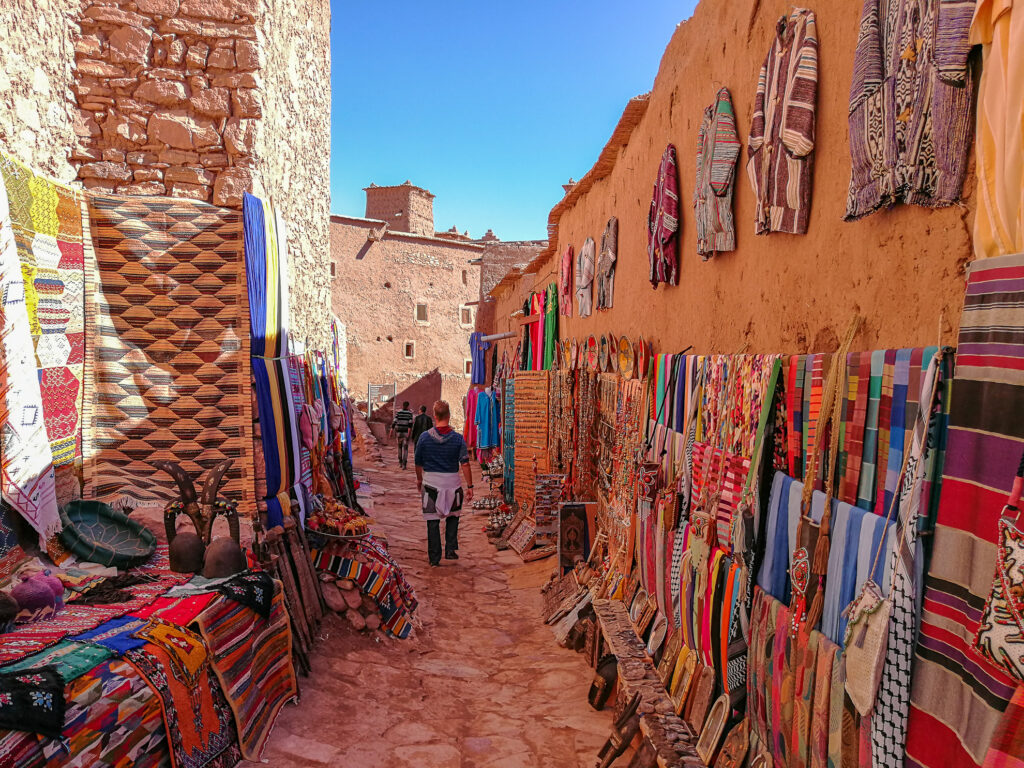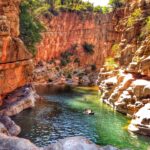Morocco, a country known for its vibrant culture and breathtaking landscapes, attracts millions of visitors each year. If you’re planning a trip to experience its rich history or ride the waves at a renowned surf camp.

Visa regulations can be complex, varying based on your nationality and the purpose of your visit. Whether you’re heading to Marrakech, the Atlas Mountains, or the coast, being informed about the necessary visa types and application processes ensures a smooth journey.
Key Takeaways
- Understand the different types of visas required for Morocco.
- Learn about the application process and necessary documents.
- Discover tips for a hassle-free travel experience.
- Explore Morocco’s popular destinations and activities.
- Find out how to make the most of your trip with a surf camp experience.
Understanding Morocco’s Visa Policy
When planning your trip to Morocco, it’s essential to understand the country’s visa policy to ensure a smooth entry process. Morocco has specific regulations regarding who needs a visa and who is exempt.
Countries Exempt from Visa Requirements
Morocco has a list of countries whose citizens are exempt from obtaining a visa for tourism or business stays. These include countries like the United States, Canada, and many European nations. Citizens of these countries can enter Morocco without a visa for a specified period.
Duration of Visa-Free Stays
The duration of visa-free stays varies depending on your nationality. For instance, US citizens can stay in Morocco for up to 90 days without a visa. It’s crucial to check the specific duration allowed for your nationality to avoid overstaying.
Recent Changes to Morocco’s Visa Regulations
Morocco has made recent changes to its visa regulations, including updates to the visa exemption list and the introduction of an electronic visa system for certain nationalities. It’s vital to check the latest information from the Moroccan government’s official website or consult with the nearest Moroccan embassy or consulate.
To ensure you have the most current information, consider the following key points:
- Check if your country is on Morocco’s visa exemption list.
- Understand the allowed duration of your visa-free stay.
- Stay updated on any recent changes to visa regulations.
Visa Requirements for US Citizens Traveling to Morocco
If you’re a US citizen heading to Morocco, knowing the visa rules can make your trip hassle-free. Morocco is a popular destination for American tourists, with its rich culture, history, and natural beauty attracting many visitors each year.
Entry Requirements for American Tourists
US citizens can enter Morocco without a visa for tourism or business stays up to 90 days. To ensure a smooth entry, you’ll need:
- A valid passport with at least six months’ validity
- Proof of onward travel
- Sufficient funds for your stay
Passport Validity Requirements
Your passport must be valid for at least six months beyond your intended stay in Morocco. This is a standard requirement for traveling to Morocco and applies to US citizens.
Length of Stay Permitted for US Citizens
US citizens are allowed to stay in Morocco for up to 90 days without a visa. This period is ideal for traveling to Marrakech and exploring other parts of the country.
Border Control Procedures
At border control, you’ll need to present your passport, proof of onward travel, and possibly show your accommodation details or proof of sufficient funds. Be prepared to answer questions about your trip, such as your itinerary and the purpose of your visit.
By understanding these requirements, you can enjoy a stress-free trip to Morocco, making the most of your time exploring this beautiful country.
Types of Moroccan Visas Available
To enter Morocco, you’ll need to choose the right visa type based on your travel purpose. Morocco offers various visas to accommodate different needs, from tourism to business and education.
Tourist Visas
Tourist visas are designed for individuals visiting Morocco for leisure or to explore the country. These visas typically have a limited validity period and may require proof of accommodation and a return ticket.
Business Visas
If you’re traveling to Morocco for business purposes, such as meetings or conferences, you’ll need a business visa. This type of visa often requires a letter of invitation from a Moroccan company or organization.
Student Visas
Students planning to study in Morocco need to apply for a student visa. This involves providing proof of enrollment in a Moroccan educational institution and demonstrating sufficient financial resources.
Work Permits and Residency Visas
For those intending to work in Morocco, a work permit is necessary, which often involves a residency visa. The application process for work permits can be complex and may require sponsorship from a Moroccan employer.
Understanding the different types of Moroccan visas and their requirements is essential for a smooth entry into the country. Make sure to choose the correct visa category based on your travel plans.
How to Apply for a Moroccan Visa
The process of obtaining a Moroccan visa involves several steps that are easy to follow. To ensure a smooth application process, it’s crucial to understand the requirements and procedures.
Required Documentation
To apply for a Moroccan visa, you’ll need to gather several documents. These typically include a valid passport with at least two blank pages, a completed visa application form, and recent passport-sized photographs. Additional documents may be required depending on the purpose of your visit, such as a letter of invitation for business trips or proof of enrollment for students.
Application Process Step-by-Step
The application process begins with filling out the visa application form accurately. You’ll then need to submit your application along with the required documents to the nearest Moroccan embassy or consulate. In some cases, you may be required to attend an interview. It’s essential to check the specific requirements for your nationality and the purpose of your visit.
Processing Times and Fees
Processing times for Moroccan visas can vary depending on the type of visa and the speed of service you choose. The fees also vary, so it’s a good idea to check with the Moroccan embassy or consulate for the most current information. Fees are typically non-refundable, even if your application is rejected.
Common Reasons for Visa Rejections
Visa applications can be rejected for several reasons, including incomplete documentation, insufficient funds, or a past immigration violation. Ensuring that you provide all required documents and meet the eligibility criteria can help minimize the risk of rejection.
Where to Submit Your Application
You can submit your Moroccan visa application at the nearest Moroccan embassy or consulate. Some countries also offer the option to apply through a visa application center. Check the official government website for the most up-to-date information on application procedures and locations.
Essential Travel Documents When Traveling to Morocco
When planning your trip to Morocco, it’s crucial to understand the essential travel documents required for a smooth entry. Ensuring you have the correct documents will help you navigate through airports and border controls with ease, allowing you to focus on enjoying your travel experience.
Passport Requirements
Your journey to Morocco begins with a valid passport. Ensure your passport is valid for at least six months beyond your planned departure date from Morocco. This is a standard requirement for entry into many countries, including Morocco, and helps prevent any issues during your trip.
Proof of Accommodation
While not always requested, it’s highly recommended to have proof of accommodation. This can be in the form of hotel reservations or a letter of invitation if you’re staying with friends or family. Having this documentation ready can facilitate your entry process.
Return Ticket Requirements
Moroccan immigration authorities may ask for a return ticket or an onward ticket as proof of your intention to leave the country. Ensure you have this information readily available to avoid any complications.
Travel Insurance Recommendations
Although not mandatory, having travel insurance is strongly advised. It covers unforeseen circumstances such as medical emergencies, trip cancellations, or lost luggage. Look for a policy that provides comprehensive coverage for your needs.
COVID-19 Related Documentation
As travel regulations continue to evolve, checking the latest COVID-19 related requirements is essential. This may include a negative test result or proof of vaccination. Stay updated with the latest travel advisories to ensure compliance.
To summarize, here’s a checklist of the essential travel documents you may need for Morocco:
| Document | Description | Required |
|---|---|---|
| Passport | Valid for at least six months beyond your stay | Yes |
| Proof of Accommodation | Hotel reservation or letter of invitation | Recommended |
| Return/Onward Ticket | Proof of intention to leave Morocco | Yes |
| Travel Insurance | Coverage for medical emergencies, trip cancellations | Recommended |
| COVID-19 Documentation | Negative test result or proof of vaccination | Check latest requirements |
By ensuring you have these documents in order, you’ll be well-prepared for a hassle-free trip to Morocco, ready to enjoy all the exciting things to do in Morocco that this beautiful country has to offer.
Extending Your Stay When Traveling to Morocco
As you immerse yourself in Morocco’s vibrant culture, you may find yourself wanting to extend your visit. Morocco, with its rich heritage and diverse landscapes, offers a unique experience that can be hard to leave behind. If you’re considering prolonging your stay, understanding the visa extension process is crucial.
Visa Extension Process
To extend your stay, you’ll need to apply for a visa extension through the local authorities. The process typically involves submitting an application to the nearest police station or immigration office. It’s advisable to start this process at least a week before your current visa expires.
Required Documents for Extensions
When applying for a visa extension, you’ll need to provide certain documents, including a valid passport, proof of financial means, and a completed application form. Ensuring you have all the required documents will help streamline the process.

Maximum Duration of Extended Stays
The maximum duration you can extend your stay varies depending on your initial visa type and the discretion of the immigration authorities. Generally, extensions can be granted for periods ranging from a few weeks to several months.
Penalties for Overstaying
It’s essential to be aware of the penalties for overstaying your visa. Failing to extend your visa or leaving Morocco after your visa has expired can result in fines, potential bans from re-entry, and other complications.
| Document | Description | Requirement |
|---|---|---|
| Valid Passport | Must be valid for at least six months beyond your intended stay | Mandatory |
| Proof of Financial Means | Evidence of sufficient funds to support your stay | Mandatory |
| Completed Application Form | Form obtained from the local immigration office or website | Mandatory |
By understanding the requirements and process for extending your stay, you can continue to enjoy all that Morocco has to offer without the stress of visa complications.
Best Time for Traveling to Morocco
The best time to visit Morocco depends on your preferences and the activities you have planned. Morocco’s diverse climate means that the ideal time to visit varies across different regions.
Seasonal Considerations
Morocco has a Mediterranean climate in the north and a desert climate in the south. The coastal regions tend to be mild, while the Atlas Mountains can be cold, especially in winter. Understanding these seasonal variations can help you pack accordingly and make the most of your trip.
Peak Tourist Seasons
The peak tourist season in Morocco is during the spring (March to May) and autumn (September to November). These periods offer pleasant weather, with mild temperatures and fewer crowds than the summer months. If you’re looking to explore cities like Marrakech or Fes, these seasons are ideal.
Weather Patterns Across Different Regions
Morocco’s climate varies significantly across different regions. The coastal areas, such as Casablanca and Rabat, have a mild climate year-round. In contrast, the desert regions can be extremely hot during the day and cold at night. The Atlas Mountains offer a cooler climate, making them a great destination for trekking and hiking.
Prime Surfing Seasons in Morocco
For surfers, Morocco is a year-round destination, but the best surfing conditions are typically found during the winter months (December to February). The swells are bigger, and the water is cooler, making it ideal for experienced surfers.
Festivals and Events Worth Planning Around
Morocco hosts various festivals and events throughout the year. The Marrakech International Film Festival, typically held in December, is a highlight for film enthusiasts. The Essaouira Gnawa Music Festival, usually in June, is another event worth planning around, offering a unique cultural experience.
Top Destinations When Traveling to Morocco
From the bustling streets of Marrakech to the tranquil beaches of Taghazout, Morocco has something for everyone. Whether you’re looking to immerse yourself in the country’s rich cultural heritage or seeking adventure in its diverse landscapes, Morocco is a treasure trove of experiences.
Must-Visit Cities: Marrakech, Fes, and Casablanca
Morocco’s cities are a blend of traditional and modern charm. Marrakech is known for its vibrant souks and stunning architecture, while Fes boasts some of the oldest and most well-preserved medieval quarters in the world. Casablanca, on the other hand, offers a glimpse into Morocco’s modern identity with its sleek skyscrapers and bustling ports.

Coastal Destinations and Beaches
The coastal towns of Morocco offer a relaxing getaway from the hustle and bustle of city life. Taghazout is a favorite among surfers, with its consistent waves and laid-back atmosphere. Essaouira is another coastal gem, known for its picturesque harbor and vibrant arts scene.
Mountain and Desert Excursions
For those seeking adventure, Morocco’s mountains and deserts offer a range of exciting opportunities. The Atlas Mountains provide a scenic backdrop for hiking and trekking, while the Sahara Desert is perfect for camel treks and camping under the stars.
Conclusion
As you prepare for your trip to Morocco, it’s essential to be well-informed about the country’s visa policy, travel requirements, and cultural norms. With this morocco travel guide, you’re now equipped with the knowledge to navigate the complexities of traveling to Morocco.
From understanding the different types of visas available to knowing the best time to visit, you’ve got a comprehensive overview of what to expect when traveling to Morocco. Whether you’re planning to explore the vibrant cities, relax on the coastal beaches, or embark on a desert adventure, Morocco has something to offer.
As you finalize your travel plans, remember to check the latest entry requirements and travel advisories. With a little planning and preparation, you’ll be ready for an unforgettable experience in Morocco. So, pack your bags, and get ready to immerse yourself in the rich culture and breathtaking landscapes that Morocco has to offer.
FAQ
Do I need a visa to travel to Morocco?
It depends on your nationality. Some countries are exempt from visa requirements, while others need to apply for a visa before traveling to Morocco.
How long can I stay in Morocco without a visa?
The duration of visa-free stays varies depending on your nationality, but it’s typically between 30 to 90 days.
What are the requirements for a Moroccan tourist visa?
To apply for a tourist visa, you’ll need a valid passport, proof of accommodation, return ticket, and travel insurance.
Can I extend my stay in Morocco?
Yes, you can extend your stay by applying for a visa extension. You’ll need to provide required documents and pay the necessary fees.
What are the must-visit destinations in Morocco?
Morocco has a rich cultural heritage, with must-visit cities like Marrakech, Fes, and Casablanca. You can also explore coastal destinations, mountain excursions, and desert landscapes.
Do I need travel insurance when traveling to Morocco?
While not mandatory, it’s highly recommended to have travel insurance that covers medical expenses, trip cancellations, and other unforeseen events.
What are the COVID-19 related documentation requirements for traveling to Morocco?
Check with your local authorities and the Moroccan government’s website for the latest COVID-19 related documentation requirements, such as vaccination certificates or negative test results.
Can I use my credit cards and ATMs in Morocco?
Major credit cards and ATMs are widely accepted in Morocco, especially in tourist areas. However, it’s always a good idea to have some local currency, dirhams, for smaller purchases and transactions.


